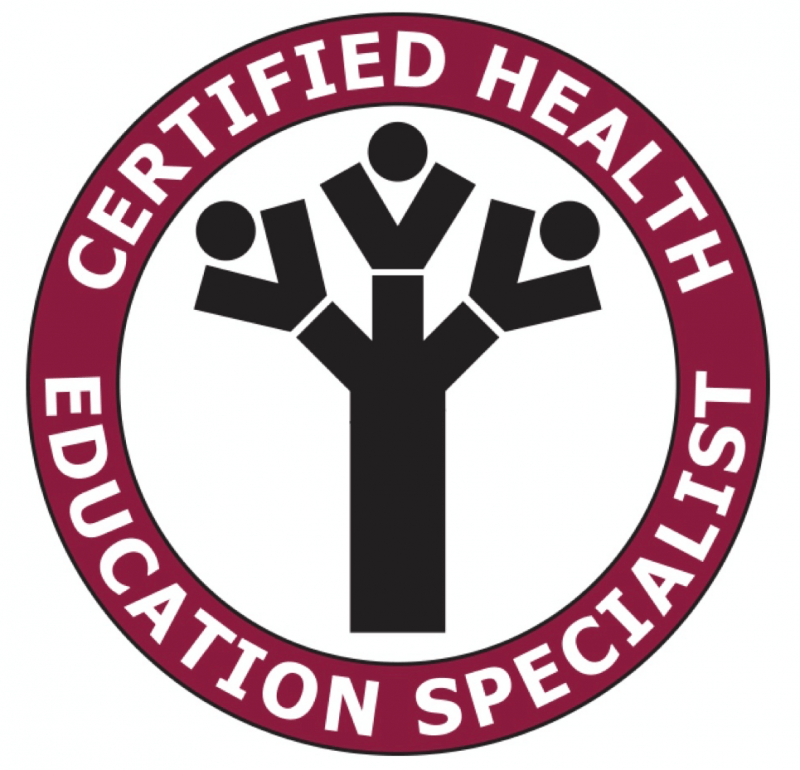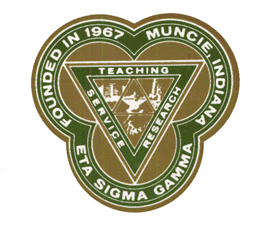B.A. in Public Health Education
What is Public Health Education?
Public Health Education is an art and science. The science is the research, data analysis, and best practices used in our field. The art are the intangibles, such as compassion, understanding, and the ability to connect with others. As Public Health Educators, we want to empower individuals and communities to be the best they can be.
By majoring in public health education, students will be prepared to work as a health educator in community organizations such as health departments, voluntary organizations, or service organizations, as well as in worksites and health care settings.
Earning a Credential
During the last semester of the student’s senior year, they will sit for the national certification exam. Students passing this exam will earn the Certified Health Education Specialist (CHES) credential.Obtaining the CHES credential is evidence to potential employers that you are competent in these areas:
Area I: Assess Needs, Resources and Capacity for Health Education/Promotion
Area II: Plan Health Education/Promotion
Area III: Implement Health Education/Promotion
Area IV: Conduct Evaluation and Research Related to Health Education/Promotion
Area V: Administer and Manage Health Education/Promotion
Area VI: Serve as a Health Education/Promotion Resource Person
Area VII: Communicate, Promote, and Advocate for Health, Health Education/Promotion, and the Profession

Internships
Otterbein University requires all seniors in our Allied Health, Exercise Science and Health Promotion, Public Health Education, and Sport Management programs to complete an internship. This opportunity allows you to integrate your formal academic preparation with a semester-long practical work experience.
The goals of the internship program are:
- To enhance your professional growth.
- To further your understanding and appreciation of the role, duties, and responsibilities of a health or sport professional.
- To further the development of a central core of values, attitudes, skills, and information related to the world of work through experiences outside the classroom and campus environment.
- To add depth and relevance to your classroom work.
- To enable you to gain a sense of different career fields and of specific jobs within each of these fields.
- To improve your job-search and interviewing skills.
FAQ About Internship
What are the benefits of interning through Otterbein?
It’s all about location, location, location. Columbus, the capital city of Ohio, and its surrounding communities offer many opportunities for you to gain access to a wide variety of work settings including government, corporations, commercial, recreational, and public and private agencies.
Where do Otterbein students intern
Recently, our students have interned at:
- Planned Parenthood
- OhioHealth
- YMCA
- Equitas Health
- Otterbein University
- Office of the Chief Wellness Office – Buckeye Wellness
- American Cancer Society
- Nationwide Children’s Hospital Nutrition and Fitness program
- Riverside Methodist Hospital
- Children’s Hunger Alliance
- The Crawford Crew
- MACC (Multiethnic Advocates for Cultural Competence)
- JDRF (Diabetes Research Foundation)
- The Ohio Commission on Minority Health
- Columbus City Schools
Careers
Students majoring in public health education will be prepared to apply those seven areas of responsibility for health educators in a variety of work settings.
Community Health – Positions such as Community Health Educator, Program Coordinator, or Health Education Consultant
- Health Departments
- Voluntary Health Organizations
- Health Service Organizations
Worksite – Positions such as Health Educator, Health Promotion Manager, Wellness Coach, Health Promotion Specialist, Community Facilitator, Wellness Coordinator
- Private companies
Health Care – Positions such as On-Site Health Educator, Community Wellness Coordinator, Patient Health Educator, Health Coach Consultant
- Hospitals
- Clinics
Alumni currently work here
- Ohio Department of Health
- Licking County Health Department
- County Commissioners Association of Ohio
- Columbus Urban League
- Nationwide Children’s Hospital
- University of Toledo
- Area Agency on Aging
Bureau of Labor Statics Classification
The U.S. Department of Labor – Bureau of Labor Statistics (BLS) has a classification of health educator and defines health educators (SOC 21-1091.00) as those that provide and manage health education programs that help individuals, families, and their communities maximize and maintain healthy lifestyles. Health Educators collect and analyze data to identify community needs prior to planning, implementing, monitoring, and evaluating programs designed to encourage healthy lifestyles, policies, and environments. They may serve as resource to assist individuals, other health professionals, or the community, and may administer fiscal resources for health education programs. Excludes “Community Health Workers” (21-1094).
- According to the U.S. Department of Labor (DOL), there were an estimated 57,570 health educators in 2016.
- Employment of health educators is projected to grow 21 percent from 2012 to 2022, faster than the average for all occupations.
- 5 out of 10 health educators work in healthcare and social assistance.
- 2 out of 10 work in state and local government
U.S. Bureau of Labor Statistics. Division of Occupational Employment Statistics (2012).
Resources
- Bachelor of Arts in Public Health Education Checklist (PDF)
- Bachelor of Arts in Public Health Education Recommended Courses (PDF)
- Bachelor of Arts in Public Health Education four year plan (PDF)
- Ohio Society for Public Health Education
- What Is a Health Education Specialist? (PDF)
- American Public Health Association
- NCHEC

Otterbein is a proud member of Eta Sigma Gamma National Health Education Honorary.
| Student Learning Outcomes | University Learning Goals (KMERI*) |
| 1. 80% of the students will pass the CHES exam. | Knowledgeable |
| 2.Students will develop and implement a health fair in the course of a semester. a) They will conduct an appropriate needs assessment, b) synthesize the results from a needs assessment and recommend topics to be covered in the health fair, c) evaluate the health fair based on predetermined criteria. | Multi-literate, Engaged |
| 3. In conjunction with National Health Week, students will a. write appropriate process, learning and behavioral objectives, b. create a logic model based on their own chosen program, c. write an evaluation report based on the data collected during the program and present the findings to their peers. | Knowledgeable, Multi-literate |
| 4. Student will create and present an epidemiological poster based on a public health related topic. As a result of this project, students will be able to a. summarize secondary data obtained by the student, b. analyze hypotheses with results and form conclusions, and c. make recommendation for future study design and implications for public health practice. | Responsible, Inquisitive |
| 5. Each student will participate in courses that help them understand appreciate and value diverse values and beliefs while developing their own ethical beliefs and principles. Each student will write an essay assessing their personal beliefs based on a set of criteria supplied by their professor. | Responsible, Inquisitive |
| 6. Each student will challenge him/herself and become life-long learners. They will feel comfortable with not only educating themselves, but understanding and using appropriate sources to do so. | Multi-literate, Inquisitive |
*NOTE: KMERI refers to Otterbein's learning goals. It stands for Knowledgeable, Multi-literate, Engaged, Responsible, and Inquisitive. To learn more about KMERI, visit our University Learning Goals page.
Apply
Now!